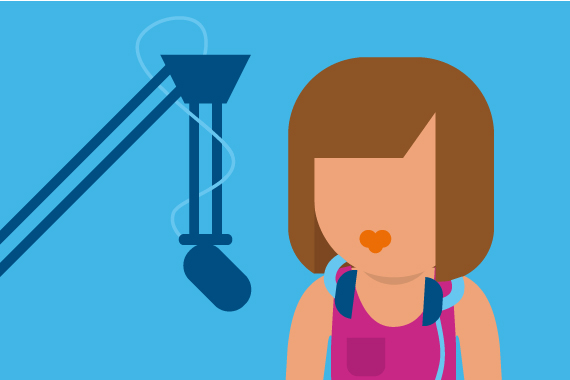How meditation helped me quit vaping
Vaping, once thought of as a safer alternative to smoking, led me down a path of increasing nicotine addiction more than smoking cigarettes ever did. The journey to quit vaping was fraught with challenges, but there was one unexpected ally in my battle against nicotine addiction: meditation. In this blog post, I’ll share my personal story of how meditation became the cornerstone of my successful journey to quit vaping.
The vaping trap
I began vaping at the age of 16 as a means of quitting cigarette smoking. This new habit had me trapped for 5 years with a fear of quitting that was significantly higher than ever before. As time went on, my anxiety levels increased, subsequently increasing my cravings for the vape, as it was the only habit I had to reduce my anxiety. Little did I know that daily nicotine withdrawals were contributing to the exacerbation of symptoms and stopping me from developing healthy strategies to effectively reduce my anxiety.
Discovering meditation as a mindfulness tool
In my journey to improve my mental health, I stumbled upon meditation. Initially, I found it very challenging and struggled to understand how a mental practice could have mental health benefits. However, after some research and perseverance I learned to trust the process. Eventually I reached a point where I could effectively manage my thoughts and emotions, liberating myself from their previous stronghold and building self-control.

Image credit: Quit-smoking-hypnosis app
Mediation increased my self-awareness, allowing me to be more mindful of changes in my thought patterns and emotional state. Developing mindfulness lets me observe what’s happening in my mind in a non-judgmental way without reacting to it or being carried away by it. This allowed me to cultivate a non-grasping mind towards spontaneously arising thoughts, which rendered me immune to craving impulses and redirected my point of focus to the motivations and drives behind quitting.
Meditation reduced the intensity towards cravings
Mindfulness through self-awareness also taught me how emotions can come and go, and this is a normal occurrence for most people throughout the day. I knew that the craving for a vape was a temporary feeling that would eventually pass. I became more curious about this feeling and accepted the emotion that came with it in a non-judgmental way without reacting to it. Therefore, when I was feeling low or anxious and normally my coping strategy would be the use of the vape, the awareness that this feeling was only temporary and being mindful of my thoughts and redirecting the focus of attention reduced the intensity of the emotional impulse that made me lean towards pleasure, reducing the craving.
From cravings to a whisper
As I dug deeper into my meditation practice, I witnessed a profound transformation in my ability to concentrate. Over time, the relentless battle between thoughts of vaping and my determination to redirect my focus began to fade. This positive shift resulted in longer periods where vaping simply didn’t cross my mind. This is because the more effortful mindfulness becomes, the quieter the post-cingulate cortex (PCC), which is involved in distractions, letting our mind wonder, and cravings. Concentration and mindfulness go hand in hand. As I trained my mind to redirect my point of focus over time, it became easier and easier. Eventually, the once-overpowering cravings for vaping were reduced to nothing more than faint whispers in the background of my consciousness.
The ongoing journey
While meditation played a significant role in helping me quit vaping, it’s important to acknowledge that addiction recovery is an ongoing process. I continue to meditate regularly to maintain my newfound freedom from nicotine addiction and to promote my overall well-being. Meditation has been a transformative force in my life. It not only helped me quit vaping but also enhanced my mental and emotional well-being.

If you’re struggling with addiction, whether it’s vaping or something else, consider giving meditation a chance. It might surprise you with its power to help you break free and live a healthier, more mindful life. Remember, it’s never too late to start your journey towards a nicotine-free life.



I myself am a smoker and have been for many years, but developing self-awareness though mindfulness, has had incredible benefits on my willingness to cut down on smoking. It suddenly felt like it will be possible for me to one day become completely smoke-free.
I agree with Greta, do not underestimate the power of your mind!